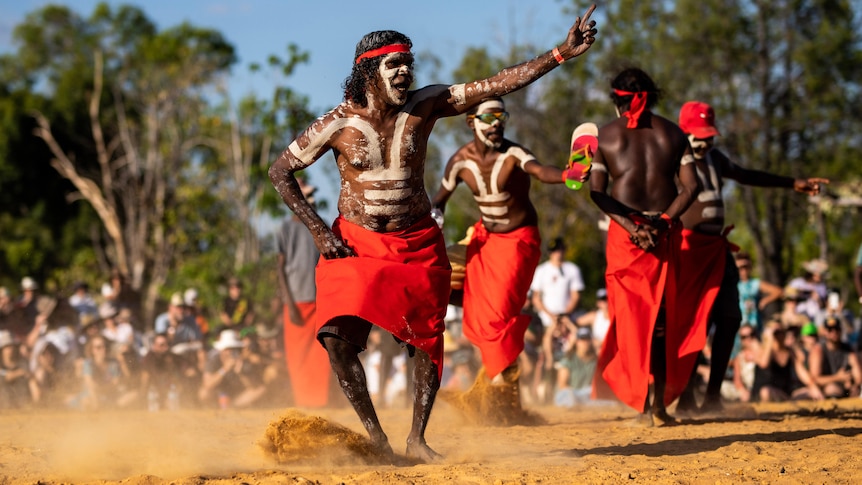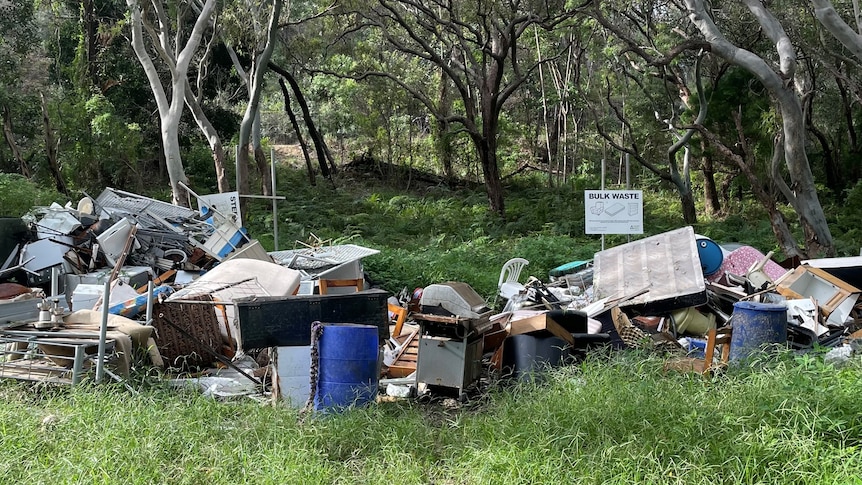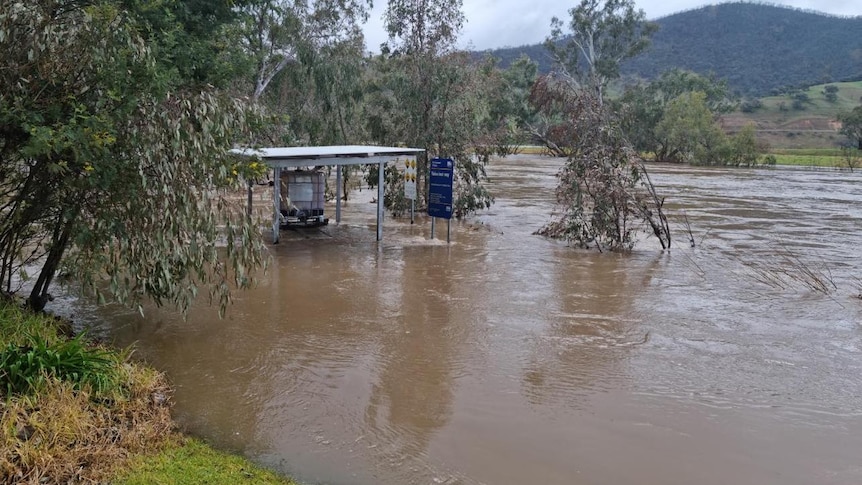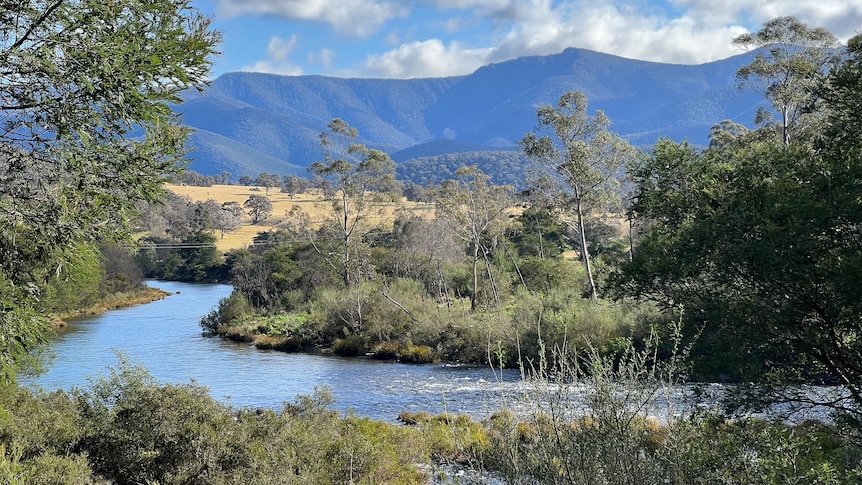The dust barely settles as it drifts across thousands of spectators circled around traditional dancers from Groote Eylandt kicking up a storm this weekend in the remote NT community of Barunga.
Historically, the buŋgul, a meeting place of dance, song and ritual, at Barunga Festival is largely admired from the sidelines — but this year was different.
“Barunga is one of those different places, it brings so many people from different communities to try to share together in one place, that’s what Barunga is all about,” Groote Eylandt dancer Leonard Amagula says.
“It is reaching out to other communities, reaching out to the young ones, to grow up and see we are doing wonderful things.”
It starts as a trickle, and then legions of people from the crowd swirl into the centre, and press together behind the Groote Eylandt Anindilyakwa experts, billowing sand across the tiny community about 400 kilometers south-east of Darwin.
It’s one of those special moments that makes the three-day festival what it is; a place where both historic agreements are made and the promise of treaties echoes loudly.
And a place where remote Indigenous culture is strengthened simply by sharing in it.
A ‘rough but happy’ beginning
The festival has a long and important history that started over three decades ago in 1985.
Mr Amagula has been a regular attendee since his teens.
Back then, he says, it was “kinda rough but happy” and much larger with far more people traveling in from other Aboriginal communities.
This year, after the festival was postponed due to COVID, creative director Michael Hohnen says that balance was almost struck again.
“Because it was not a long weekend, [there] was probably a few less people and the date change, a lot of people can’t plan for that date change, but I actually like this energy a lot,” he said.
“We didn’t push it at all in anywhere but remote communities … that’s what Barunga [Festival] is supposed to be, the community invites visitors in.”
A succession of local NT bands took to the main stage across the three days, as MCs called musicians up for their slot and announced the winners of sport trophies in between sets – the by-product of a festival thin on staff running on ‘Barunga time ‘.
On Saturday night, singer and political activist Walmatjarri elder Kankawa Nagarra – who toured with Hugh Jackman in Broadway to Oz – opened the main stage concert delivering a string of songs that delved into a life of hardship as she moved from mission to mission.
Then Salt Lake and Eylandt Band from Groote fired up the crowd.
A link to political past
Dissimilar to past years, where the rallying cries for action from leaders have been loud and fearless, it was quieter on the political front, leaving the festival’s roots in sport, music and culture to shine.
But at a festival steeped in political history, the past couldn’t be ignored.
It was at this festival, 34 years ago, that Aboriginal elders and leaders presented then Prime Minister Bob Hawke with the Barunga Statement – a call for treaty.
“We haven’t seen a treaty yet,” Northern Territory Treaty Minister Selena Uibo tells the crowd gathered for the opening ceremony in the heat of the afternoon.
“This is something my team and I are working hard to have progressed … to listen to all of those voices that have been very loudly singing for the last three decades.”
It’s been almost five years since then chief minister Michael Gunner and all four Northern Territory land councils signed a Memorandum of Understanding — the Barunga Agreement — paving the way for consultations to begin with Aboriginal people about a treaty.
And just last month the Territory’s first treaty report was tabled in parliament.
Ms Uibo reiterated her commitment to provide a formal response by the end of the year and encouraged people to work together to close the gap, which she labeled, “so devastating in terms of disadvantage.”
“What can you do in your role, what can you do in your bubble, what can you do in your everyday lives that will truly promote and create reconciliation?” she asked the crowd.
.



